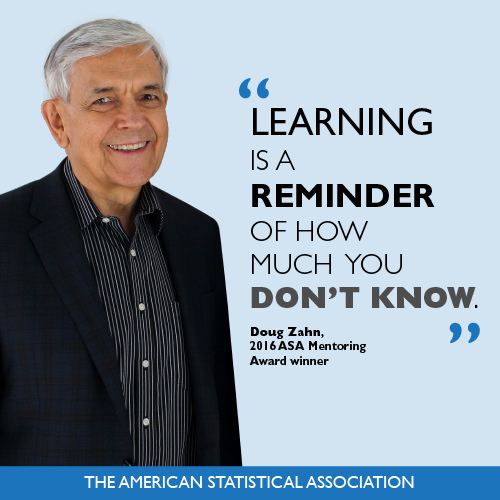 Jennifer Thompson earned her MPH in biostatistics from The University of North Carolina at Chapel Hill in 2005. After spending more than 13 years in academic clinical research focused on critical illness at Vanderbilt University Medical Center, she is now a data scientist at Devoted Health in Waltham, Massachusetts.
Jennifer Thompson earned her MPH in biostatistics from The University of North Carolina at Chapel Hill in 2005. After spending more than 13 years in academic clinical research focused on critical illness at Vanderbilt University Medical Center, she is now a data scientist at Devoted Health in Waltham, Massachusetts. 
Heather Kopetskie holds an MS in biostatistics from The University of North Carolina at Chapel Hill. She is a senior biostatistician at Rho and also serves as the biostatistics operational service leader, an internal expert sharing biostatistical industry trends, best practices, processes, and training.
A master’s degree is a rewarding educational choice for those who are excited by the application of statistical methods to practical problems. Compared to those with a PhD, however, there can be some specific challenges: Career development options are not always clear, and it can be more difficult to gain respect. We have found the following strategies to be helpful in navigating these potential challenges.
Understand the values of your employer and yourself. Determine what is important to you in a career. Is it financial stability, skill growth, or the ability to lead? (Keep in mind these may, and likely will, change over the course of your career, and make sure to re-evaluate every few years.) Once you have a strong idea of what is important in each season of your career, you can focus on finding an employer who will provide an environment in line with your goals. Do you want to be challenged daily and work on lots of projects or dive deeply into a specific domain? Do you love applied statistics and want to expand your technical knowledge, or do you like leading and want to grow into a manager? Use your job interviews as an opportunity for you to get to know the company better, in addition to them meeting you. Questions like the following will help you form a well-rounded view of the employer’s perspective:
- What do promotion path(s) look like for those with a master’s? Are there multiple paths, or is everyone expected to have similar roles? Is there room for growth in directions that interest you?
- What projects are you likely to work on, both short- and long-term? If you are interested in developing skills in Bayesian statistics but master’s employees at the company generate standardized statistical reports, this won’t be a good match.
- Are there any jobs at this organization you won’t be able to do without a PhD? Are those jobs that would be attractive to you?
CONTINUE DEVELOPING SKILLS IN BOTH STATISTICS AND RELATED AREAS. Master’s statisticians are often more generalists than PhD statisticians and need to continue learning about a wide variety of methods and applications. Read journal articles to give yourself an arsenal of ideas you can apply to research or business problems. If you’re on Twitter, follow hashtags such as #StatsTwitter or #EpiTwitter to see what others think. Be aware of both your knowledge gaps and new statistical and technical approaches and find ways to learn about them. In addition to traditional methods like conference short courses and textbooks, a wealth of learning material is available online through massive open online courses and blogs about statistics and statistical programming. No one needs to (or can) know everything, of course. But keeping an eye on developments in areas most relevant to your career path will help you grow personally and add value to your team.
Developing expertise in stats-adjacent areas is another way to add specific value to your organization and differentiate yourself. Depending on your career path, you may have experience in project management, reproducible research, data privacy, a particular business or research domain … possibilities abound! Find an area of interest to you and learn more.
CONTINUE WORKING ON YOUR COMMUNICATION SKILLS. Learn how to play the role of translator going from research or business questions to statistics and vice-versa. While PhD programs have built-in writing preparation thanks to dissertations and research papers, many master’s programs put less emphasis on writing. Focus on developing all forms of communication, from writing emails, reports, and manuscripts to formal presentations and articulating a statistical point of view in meetings. Better business and scientific writing, and being able to verbally communicate statistical concepts and interpretations, will help you communicate and demonstrate your value.
Our jobs involve communication, collaboration, project management, independence, and problem-solving; without these, our statistical work will have little impact. Developing these professional skills is as important as developing your statistical toolbox.
THINK ABOUT YOUR CAREER STRATEGY. You may not always know what the next best move is, but a mentor can help steer you in the right direction. Find mentors who can help you get the best out of your career, focusing on what you value and not what they think you should concentrate on. Sponsors can also help you see opportunities for recognition and growth. Remember we mentioned blogs? Here’s a great one on sponsorship.
Small conferences and interest groups are a great place to connect. A local ASA chapter may also be able to help. For example, the ASA North Carolina Chapter holds mentoring meetings periodically.
Over time, it will be helpful to identify more than one mentor in multiple areas of expertise and levels of experience. This ensures you have someone to look to for multiple perspectives and types of questions, whether related to statistics, leadership, or work-life integration. These mentoring relationships don’t have to be formal; the most important idea is to connect with people who can help shape your career goals and directions. Also, don’t forget to be a good mentee.
If statistics is your second career, remember to leverage the skills you developed in your previous career. If you came to statistics with a teaching background, you’ll excel at communicating new ideas to others. If you have a law degree, you may have an advantage working with regulatory authorities. Your previous career/experiences are a valuable asset when you figure out how to leverage them in your new career.
Being a master’s statistician can be incredibly rewarding when there’s a good fit between your goals and your roles. Knowing what you value and continuing to develop your skills and expertise are key to thriving in your career.




Leave a Reply